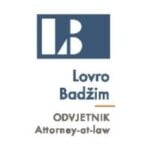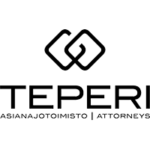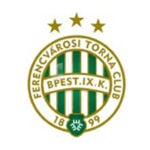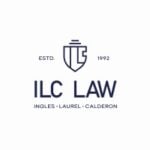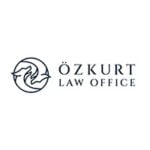-
Do you have a specific sport tribunal in your country to decide sports-related domestic issues for one or more disciplines? Are there any other sports-specific alternative dispute resolutions in your country, i.e. mediation, conciliation, or sports ombuds instance? Are there cases that can or cannot be submitted to a specific sports tribunal or cannot be subject to arbitration (e.g. labor disputes)?
Portugal has established a specialised jurisdiction for sports-related disputes through the Tribunal Arbitral do Desporto (TAD), or Court of Arbitration for Sport. The TAD was created by Law No. 74/2013 of 6 September, subsequently amended by Law No. 33/2014, and operates under the auspices of the Portuguese Olympic Committee. It functions as an independent and permanent arbitral tribunal with nationwide competence in matters arising from the national sports system. The TAD provides both mandatory and voluntary arbitration, as well as mediation and non-binding legal advisory services.
Mandatory arbitration before the TAD applies to disputes stemming from acts or omissions of sports federations, professional leagues, or other bodies exercising regulatory, organisational, or disciplinary powers delegated by the State. It also has exclusive jurisdiction over appeals relating to disciplinary decisions and cases involving anti-doping violations, as determined by the Portuguese Anti-Doping Authority (ADoP). In these cases, the TAD functions as the highest national authority before potential recourse to the Court of Arbitration for Sport (CAS) in Lausanne.
In addition to these mandatory matters, the TAD may also hear cases under voluntary arbitration, provided the parties have agreed in writing to submit their dispute to the tribunal. Voluntary arbitration is commonly used for contractual and labour-related disputes involving professional athletes, coaches, or agents, as well as commercial matters such as sponsorship or image-rights agreements. These disputes could alternatively be brought before ordinary labour or civil courts, but arbitration before the TAD offers a specialised and expedited route within the sports sector. The TAD also succeeded the former Paritary Commissions for Sports Labour Arbitration, historically responsible for resolving employment disputes between clubs and athletes.
Certain matters fall outside the jurisdiction of the TAD. These include disputes concerning technical or disciplinary decisions made during competitions, such as refereeing decisions or in-game sanctions, which remain within the exclusive competence of the relevant sports federations or leagues. Moreover, while the TAD operates a Mediation Service for voluntary and confidential resolution of disputes, mediation is not permitted in cases concerning disciplinary matters, doping, or acts of violence associated with sporting activities. These are instead handled through the arbitral chamber or appropriate judicial authorities.
Beyond its adjudicative role, the TAD also performs a consultative function, providing non-binding legal opinions on sports law issues at the request of public sports authorities, the Portuguese Olympic and Paralympic Committees, sports federations, and the ADoP. This function contributes to the uniform interpretation and application of sports law in Portugal.
Portugal does not have a dedicated Sports Ombudsman established by law. Some clubs and competitions have appointed fan ombudspersons (Provedores do Adepto) as internal mediators for supporter-related concerns, but these are informal mechanisms without national jurisdiction. On a broader scale, the Provedor de Justiça (National Ombudsman) may receive complaints related to public administration within the sports sector. Additionally, the Autoridade para a Prevenção e o Combate à Violência no Desporto (APCVD) serves as the governmental body responsible for preventing and sanctioning violence, racism, and other unlawful behaviour at sports events, complementing the TAD’s jurisdiction by focusing on public safety and integrity rather than dispute resolution.
In conclusion, Portugal maintains a well-defined framework for the resolution of sports-related disputes, centred on the Tribunal Arbitral do Desporto. Through a combination of mandatory and voluntary arbitration, mediation, and advisory functions, the TAD ensures the consistent and specialised adjudication of sports law issues. Although there is no statutory sports ombudsman, the system is complemented by other regulatory and enforcement bodies, ensuring both integrity and fairness within Portuguese sport.
-
How is Sports law codified in your country? Is there a specific Statute or Code? Are there national sports authorities, independent agencies, or government ministries responsible for oversight?
Sports law in Portugal is not contained within a single, comprehensive code but is instead structured through a combination of framework legislation, sector-specific statutes, and regulations issued by sports federations and governmental bodies. The primary legislative instrument defining the foundations of the Portuguese sports system is the Lei de Bases da Atividade Física e do Desporto (Law No. 5/2007 of 16 January), commonly referred to as the Law on the Foundations of Physical Activity and Sport. This statute establishes the general principles governing the organisation, promotion, and regulation of sport, as well as the relationship between the State, sports federations, and other private entities involved in sports activities.
In addition to this framework law, a series of complementary statutes regulate particular aspects of sports governance and integrity. The most recent and significant development is the Law No. 14/2024 of 19 January, which sets out the Legal Regime on Sports Integrity and the Prevention and Combat of Unsporting Conduct. This new legislation repealed earlier laws on similar matters (notably Law No. 112/99 and Law No. 50/2007) and introduced a consolidated framework addressing match manipulation, corruption, betting-related offences, and integrity promotion within Portuguese sport. It also formally established the Conselho Nacional para a Integridade do Desporto (CNaID), a national body tasked with coordinating the implementation of integrity policies and monitoring compliance with international standards, such as the Council of Europe’s Macolin Convention on the manipulation of sports competitions.
Sports law in Portugal further incorporates various sectoral regimes, including the Anti-Doping Law (Law No. 81/2021 of 30 November), which transposes the World Anti-Doping Code, and the Legal Framework for Sports Societies (Decree-Law No. 10/2013 of 25 January), which governs the creation, ownership, and operation of professional sports companies (Sociedades Anónimas Desportivas – SADs). Specific legislation also regulates sports betting (Decree-Law No. 66/2015, as amended), stadium safety and fan behaviour (Law No. 39/2009), and youth and grassroots sports policies under the competence of public authorities.
Institutional oversight of sport in Portugal is primarily exercised by the Instituto Português do Desporto e Juventude (IPDJ), a public institute under the supervision of the Secretariat of State for Youth and Sport. The IPDJ is responsible for implementing national sports policy, recognising and supervising sports federations, allocating public funding, and monitoring compliance with regulatory obligations. In addition, the Confederação do Desporto de Portugal (CDP) acts as a representative body for all national sports federations and serves as a consultative partner to the government on matters of sports policy and governance.
Other independent agencies and bodies play complementary roles within the legal and institutional framework. The Autoridade Antidopagem de Portugal (ADoP) oversees the national anti-doping programme and ensures alignment with international standards established by the World Anti-Doping Agency (WADA). The Autoridade para a Prevenção e o Combate à Violência no Desporto (APCVD) functions as the regulatory and enforcement authority for preventing and sanctioning violence, racism, xenophobia, and intolerance in sporting contexts. Together, these institutions form an interconnected system of regulation, integrity monitoring, and dispute resolution, further supported by the Tribunal Arbitral do Desporto (TAD), which serves as the national sports arbitration tribunal.
In summary, while Portugal does not possess a codified “Sports Code” in the strict sense, it maintains a comprehensive and coherent legal structure built on a hierarchy of laws and specialised institutions. The combination of framework legislation, integrity-focused reforms, and dedicated public authorities provides a modern governance model that aligns with European and international standards while reflecting the specificities of the Portuguese sports ecosystem.
-
Advertising and marketing in sport: which are the limitations foreseen in your country, for instance in relation to alcohol, tobacco or betting advertising on or around sports infrastructure, on official clothing, etc.?
Advertising and marketing activities in the sports sector in Portugal are governed by a combination of general advertising law and specific restrictions related to public health, gambling, and the protection of minors. The central legislative framework is the Código da Publicidade (Advertising Code), approved by Decree-Law No. 330/90 of 23 October, as amended. This statute sets the general rules applicable to all forms of advertising and sponsorship, including those in sporting contexts, and establishes the basic principles of truthfulness, identification, and prohibition of misleading or offensive content. It also provides for sector-specific limitations on the promotion of products such as alcohol, tobacco, and gambling, which are of particular relevance to sports marketing.
In relation to alcohol advertising, Portugal imposes significant restrictions aimed at protecting public health and vulnerable audiences. The Advertising Code prohibits the dissemination of advertising for alcoholic beverages in spaces and events primarily attended by minors, as well as in venues where the consumption of alcohol is legally prohibited. Consequently, sports venues and events, especially those involving youth categories or national teams, are subject to strict limitations regarding alcohol sponsorships and promotional displays. Moreover, the Código da Publicidade forbids the direct encouragement of excessive or irresponsible consumption and prohibits any advertising associating alcohol with physical performance, social or sexual success, or the operation of vehicles. These restrictions have led most Portuguese sports federations to adopt self-regulatory guidelines further limiting alcohol branding in competition environments.
As for tobacco, the legal regime is even more restrictive. The Law No. 37/2007 of 14 August, as amended by Law No. 63/2017 of 3 August, transposes European Union directives on tobacco control and prohibits all forms of tobacco advertising, promotion, and sponsorship. This prohibition explicitly extends to sports sponsorships and events, regardless of whether the promotion is direct or indirect. Tobacco companies are thus barred from associating their products, trademarks, or corporate identities with sporting activities, facilities, or athletes. The restriction applies comprehensively to broadcast, online, and on-site marketing, aligning Portuguese law with the WHO Framework Convention on Tobacco Control.
The regulation of betting and gambling advertising has evolved in recent years in response to the liberalisation of online gaming. The principal legal framework is found in Decree-Law No. 66/2015 of 29 April, which established the Legal Regime for Online Gambling and Betting and placed oversight authority in the Serviço de Regulação e Inspeção de Jogos (SRIJ), under the Tourism of Portugal Institute. Under this regime, operators licensed to offer sports betting (“apostas desportivas à cota”) must comply with specific advertising standards designed to ensure responsible gaming and protect minors. Advertising cannot mislead consumers regarding odds or winnings, must include information on age restrictions and responsible gambling, and cannot appear in contexts predominantly targeted at young audiences. Furthermore, there has been ongoing political debate in 2024–2025 regarding the possible introduction of stricter limits or partial bans on betting sponsorships in professional sports, reflecting broader European trends toward regulating gambling exposure in sport.
Sponsorship and advertising arrangements within Portuguese sport are also subject to federation-level regulation. Each recognised sports federation must approve and monitor the commercial partnerships of its affiliated clubs and athletes, ensuring compliance with national law and federation ethics codes. For instance, in football, the Federação Portuguesa de Futebol (FPF) and Liga Portugal have issued directives restricting advertising of certain products on official kits and around matchday facilities. Similar rules apply in sports such as basketball, handball, and motorsports, often inspired by the sponsorship guidelines of their respective international governing bodies.
Finally, advertising in sport must comply with general consumer protection principles and competition law. The Autoridade de Segurança Alimentar e Económica (ASAE) and the Direção-Geral do Consumidor (DGC) are the public bodies empowered to monitor compliance, impose fines, and withdraw illicit advertising. The Self-Regulatory Advertising Association (ARP – Auto Regulação Publicitária) also plays an important complementary role through its Júri de Ética Publicitária, which provides opinions and adjudications on advertising ethics, including in the sports domain.
In summary, while sports marketing in Portugal operates within a liberal commercial environment, it is constrained by a well-developed framework of public health, consumer protection, and gambling regulations. Advertising of alcohol, tobacco, and betting is permitted only under strict conditions, and the growing emphasis on integrity and social responsibility in sport has led to increasing scrutiny of sponsorship arrangements. This balance reflects Portugal’s commitment to aligning sports commercial practices with broader European standards on health and ethical advertising.
-
Match-fixing: How is match-fixing and other forms of match manipulation combated in your country? Has your country ratified the Macolin Convention? What is the role of the sports betting industry in your country and is it subject to any specific state regulations?
Portugal maintains a comprehensive institutional structure dedicated to safeguarding the integrity and ethical standards of sport. The framework is based on coordination between governmental authorities, independent agencies, and recognised sports federations, combining preventive, educational, and disciplinary measures.
The principal body responsible for promoting integrity across all sports disciplines is the Conselho Nacional para a Integridade do Desporto (CNaID), created by Law No. 14/2024 of 19 January. The CNaID functions as a permanent interinstitutional council entrusted with the coordination of national policies on sports integrity and the prevention of unsporting conduct. Its composition includes representatives from government departments, law enforcement agencies, the judiciary, sports federations, the Portuguese Olympic and Paralympic Committees, and licensed betting operators. The Council’s duties include monitoring the implementation of integrity standards, coordinating preventive strategies, and facilitating cooperation between domestic and international organisations, including Europol, Interpol, and the Council of Europe. It also oversees the National Platform for the Monitoring of Manipulation of Sports Competitions, which gathers and analyses data relating to suspicious activities, betting irregularities, and other integrity risks.
In the field of anti-doping, the competent authority is the Autoridade Antidopagem de Portugal (ADoP). The ADoP operates as an independent public body responsible for implementing the World Anti-Doping Code within the Portuguese legal framework. Its mandate encompasses testing, results management, disciplinary procedures, and educational programmes promoting ethical conduct in sport. Decisions rendered by the ADoP may be appealed before the Tribunal Arbitral do Desporto (TAD), which serves as the national appellate body in anti-doping matters. The ADoP maintains close institutional cooperation with the World Anti-Doping Agency (WADA) and the monitoring mechanisms established under the Council of Europe Anti-Doping Convention.
Portuguese law also addresses ethics, safeguarding, and the prevention of abuse within sports organisations. Under the Lei de Bases da Atividade Física e do Desporto (Law No. 5/2007), sports entities bear a statutory obligation to ensure the physical and moral protection of all participants, with particular emphasis on minors and vulnerable individuals. This obligation is complemented by general provisions of the Labour Code and the Penal Code, which prohibit harassment, discrimination, and abuse in professional and training contexts. Federations recognised by the Instituto Português do Desporto e Juventude (IPDJ) are required to adopt codes of ethics and safeguarding policies, including mechanisms for the prevention and reporting of harassment or misconduct. Non-compliance may lead to disciplinary measures or loss of public funding.
The protection of minors in sport is reinforced by specific legislation, notably Law No. 113/2009, which mandates criminal background checks for all professionals working with children and young athletes. Sports clubs and federations are further encouraged to appoint dedicated safeguarding officers responsible for receiving complaints and liaising with competent authorities. The IPDJ and the ADoP regularly conduct integrity and ethics training sessions aimed at promoting awareness and prevention at grassroots and elite levels.
Issues relating to violence, discrimination, and spectator behaviour fall under the competence of the Autoridade para a Prevenção e o Combate à Violência no Desporto (APCVD), created by Law No. 39/2009. The APCVD supervises compliance with regulations governing safety in sports venues, crowd management, and the prevention of racist, xenophobic, or violent acts. It may impose administrative sanctions, including fines and temporary bans from stadiums, and cooperates closely with the police and the CNaID in cases where integrity and public safety concerns overlap.
Together, these institutions form a cohesive integrity protection framework. The CNaID coordinates the national strategy against corruption and manipulation, the ADoP ensures compliance with international anti-doping obligations, the APCVD enforces public order and safety regulations, and the IPDJ supervises governance and ethics standards within sports organisations. This integrated model reflects Portugal’s commitment to maintaining transparency, fairness, and ethical conduct in sport, aligning national policy with European and international standards.
-
Is there an institution safeguarding the integrity across sports in your country, e.g. ethics and doping violations or abuse cases? Which rules does such an institution apply?
Portugal maintains a comprehensive institutional structure dedicated to safeguarding the integrity and ethical standards of sport. The framework is based on coordination between governmental authorities, independent agencies, and recognised sports federations, combining preventive, educational, and disciplinary measures.
The principal body responsible for promoting integrity across all sports disciplines is the Conselho Nacional para a Integridade do Desporto (CNaID), created by Law No. 14/2024 of 19 January. The CNaID functions as a permanent interinstitutional council entrusted with the coordination of national policies on sports integrity and the prevention of unsporting conduct. Its composition includes representatives from government departments, law enforcement agencies, the judiciary, sports federations, the Portuguese Olympic and Paralympic Committees, and licensed betting operators. The Council’s duties include monitoring the implementation of integrity standards, coordinating preventive strategies, and facilitating cooperation between domestic and international organisations, including Europol, Interpol, and the Council of Europe. It also oversees the National Platform for the Monitoring of Manipulation of Sports Competitions, which gathers and analyses data relating to suspicious activities, betting irregularities, and other integrity risks.
In the field of anti-doping, the competent authority is the Autoridade Antidopagem de Portugal (ADoP). The ADoP operates as an independent public body responsible for implementing the World Anti-Doping Code within the Portuguese legal framework. Its mandate encompasses testing, results management, disciplinary procedures, and educational programmes promoting ethical conduct in sport. Decisions rendered by the ADoP may be appealed before the Tribunal Arbitral do Desporto (TAD), which serves as the national appellate body in anti-doping matters. The ADoP maintains close institutional cooperation with the World Anti-Doping Agency (WADA) and the monitoring mechanisms established under the Council of Europe Anti-Doping Convention.
Portuguese law also addresses ethics, safeguarding, and the prevention of abuse within sports organisations. Under the Lei de Bases da Atividade Física e do Desporto (Law No. 5/2007), sports entities bear a statutory obligation to ensure the physical and moral protection of all participants, with particular emphasis on minors and vulnerable individuals. This obligation is complemented by general provisions of the Labour Code and the Penal Code, which prohibit harassment, discrimination, and abuse in professional and training contexts. Federations recognised by the Instituto Português do Desporto e Juventude (IPDJ) are required to adopt codes of ethics and safeguarding policies, including mechanisms for the prevention and reporting of harassment or misconduct. Non-compliance may lead to disciplinary measures or loss of public funding.
The protection of minors in sport is reinforced by specific legislation, notably Law No. 113/2009, which mandates criminal background checks for all professionals working with children and young athletes. Sports clubs and federations are further encouraged to appoint dedicated safeguarding officers responsible for receiving complaints and liaising with competent authorities. The IPDJ and the ADoP regularly conduct integrity and ethics training sessions aimed at promoting awareness and prevention at grassroots and elite levels.
Issues relating to violence, discrimination, and spectator behaviour fall under the competence of the Autoridade para a Prevenção e o Combate à Violência no Desporto (APCVD), created by Law No. 39/2009. The APCVD supervises compliance with regulations governing safety in sports venues, crowd management, and the prevention of racist, xenophobic, or violent acts. It may impose administrative sanctions, including fines and temporary bans from stadiums, and cooperates closely with the police and the CNaID in cases where integrity and public safety concerns overlap.
Together, these institutions form a cohesive integrity protection framework. The CNaID coordinates the national strategy against corruption and manipulation, the ADoP ensures compliance with international anti-doping obligations, the APCVD enforces public order and safety regulations, and the IPDJ supervises governance and ethics standards within sports organisations. This integrated model reflects Portugal’s commitment to maintaining transparency, fairness, and ethical conduct in sport, aligning national policy with European and international standards.
-
How is corruption in sport regulated in your country? Is corruption between private individuals subject to criminal or civil liability and are there any sport specific corruption regulations?
The legal framework governing corruption in sport in Portugal combines the general provisions of the Portuguese Criminal Code with specific mechanisms introduced under Law No. 14/2024 of 19 January, which establishes the Legal Regime on Sports Integrity and the Prevention and Combat of Unsporting Conduct. Together, these instruments provide both criminal and disciplinary means to prevent, detect, and sanction corruption, bribery, and related offences within the sports sector.
Under the Criminal Code, corruption is addressed primarily through Articles 372 to 374-B, which criminalise both active and passive corruption involving public officials and extend criminal liability to acts of corruption between private individuals (corrupção no sector privado). This latter offence, introduced by Law No. 20/2008, covers the promise, offer, or acceptance of an undue advantage intended to distort fair competition or breach professional duties within private entities, including sports organisations. Penalties range from imprisonment of six months to five years, depending on the gravity and the nature of the offence. Legal persons, such as sports clubs and commercial entities, may also be held criminally liable.
At the sectoral level, Law No. 14/2024 provides a dedicated framework for combating corruption and manipulation in sport. The statute explicitly identifies the manipulation of sports competitions, match-fixing, and betting fraud as criminal offences and establishes corresponding sanctions of up to eight years of imprisonment. It further defines a broad spectrum of “unsporting conduct,” encompassing acts of corruption, coercion, and conflicts of interest that may compromise the integrity of competition. The law imposes an affirmative obligation on all sports stakeholders, including athletes, coaches, referees, and agents, to report any suspicion of corrupt or manipulative practices to the competent authorities. Failure to report such conduct constitutes a disciplinary offence.
Institutional enforcement is coordinated through the Conselho Nacional para a Integridade do Desporto (CNaID), which serves as the national platform for the prevention and investigation of corruption and manipulation in sport. The CNaID’s role includes the collection and analysis of information, the coordination of interagency cooperation, and the promotion of integrity education across sports federations. It operates in close collaboration with the Polícia Judiciária (Judicial Police) and the Public Prosecutor’s Office, which retain exclusive competence for criminal investigations. Within the Judicial Police, the Unidade Nacional de Combate à Corrupção (UNCC) is responsible for handling corruption cases, including those linked to professional sport.
The Instituto Português do Desporto e Juventude (IPDJ) and the Autoridade para a Prevenção e o Combate à Violência no Desporto (APCVD) also play complementary roles in preventing corruption and promoting good governance. The IPDJ supervises the compliance of sports federations with governance standards and ethical codes, while the APCVD addresses cases in which corrupt practices intersect with acts of violence, discrimination, or public disorder. Federations are required to adopt integrity and ethics regulations, including explicit provisions on conflicts of interest, transparency in financial management, and prohibition of undue influence on refereeing or disciplinary decisions. Breaches of these regulations may lead to disciplinary sanctions, suspension of officials, or exclusion from competition.
Recent years have seen a notable increase in the criminal enforcement of corruption offences within Portuguese sport. Investigations involving top-tier football clubs and senior officials, such as the Cartão Vermelho and Operação Fora de Jogo cases, have demonstrated the authorities’ willingness to prosecute corruption, money laundering, and fiscal offences linked to player transfers and match manipulation. These cases have highlighted the convergence between criminal law, sports regulation, and financial transparency obligations imposed by national and European anti-corruption frameworks.
Corruption in sport may therefore give rise to both criminal and civil liability, depending on the nature of the conduct. While the Criminal Code provides for imprisonment, fines, and corporate penalties, sports disciplinary bodies may impose suspensions, expulsion, or loss of licensing. This dual-track approach ensures that sanctions address not only the criminal dimension of corruption but also its reputational and sporting impact.
Portugal’s approach reflects a deliberate alignment with European best practices in integrity governance. The combination of comprehensive legislation, dedicated institutional mechanisms, and increasing judicial enforcement demonstrates a strong national commitment to transparency and accountability in sport. The 2024 Integrity Law, in particular, marks a decisive step towards a coherent legal regime where corruption, manipulation, and other unsporting conduct are treated as offences against both law and fair competition.
-
How is fan behavior regulated by law (for example banning orders, criminal penalties for violence, specific laws addressing measures against violence at sporting events etc.)?
The regulation of fan behaviour and the prevention of violence associated with sporting events in Portugal are governed by a specific and well-developed legal regime. The principal instrument is Law No. 39/2009 of 30 July, which establishes the Legal Framework for Security and Combating Violence, Racism, Xenophobia and Intolerance in Sport. This legislation was subsequently amended by Law No. 52/2013 and Law No. 113/2019, reflecting a policy evolution toward stricter preventive measures and enhanced coordination among public authorities, sports bodies, and law enforcement agencies.
Law No. 39/2009 sets out a comprehensive system of administrative, criminal, and disciplinary provisions aimed at preserving public order and ensuring the safety of participants and spectators. It applies to all sporting events held on national territory, regardless of the level of competition or the organiser’s legal status. The statute defines violent conduct broadly, encompassing physical aggression, property damage, hate speech, the display of discriminatory symbols, and any conduct inciting violence or hatred on grounds of race, ethnicity, nationality, or religion. It also prohibits the introduction or use of pyrotechnic devices, weapons, and other objects capable of causing harm within sports venues.
The law establishes a number of preventive and punitive mechanisms. Among these are the prohibition orders (“interdições de acesso a recintos desportivos”), which allow the competent authorities to ban individuals convicted of violent or disorderly conduct from entering sports facilities for periods ranging from three months to three years. Repeat offences may result in longer bans of up to five years. These measures can be imposed either by the criminal courts or administratively by the Autoridade para a Prevenção e o Combate à Violência no Desporto (APCVD), the body created to supervise compliance with the law and enforce sanctions. The APCVD maintains a national Register of Persons Prohibited from Access to Sports Venues, which is shared with sports organisers and law enforcement agencies to ensure effective control at stadium entrances.
The APCVD also exercises supervisory and regulatory functions. It is responsible for licensing supporter groups (“grupos organizados de adeptos”), monitoring their conduct, and ensuring that clubs fulfil their obligations regarding fan registration and security coordination. Clubs are required to designate a Supporters’ Liaison Officer (SLO) to maintain communication between organised supporters and management, in line with UEFA recommendations. In cases of misconduct by registered supporter groups, the APCVD may suspend or revoke their official recognition, impose fines, or order the temporary closure of facilities.
Sports organisers and clubs bear specific duties under the same law. They must guarantee security conditions within sports venues, ensure the presence of stewards and private security personnel, and cooperate with the police and the APCVD in risk assessment and crowd management. Clubs are further required to implement video surveillance systems, maintain a database of ticket-holders for high-risk matches, and adopt internal regulations on fan behaviour. Failure to comply with these obligations constitutes an administrative offence, punishable by fines or temporary suspension of competition licences.
The Portuguese Police Forces, namely the Polícia de Segurança Pública (PSP) and the Guarda Nacional Republicana (GNR), play an operational role in enforcing the legal framework. They are responsible for risk classification of matches, approval of security plans, and intervention in cases of public disorder. The law provides for cooperation between law enforcement, the APCVD, and the Public Prosecutor’s Office, particularly in cases involving criminal conduct such as assault, vandalism, or incitement to violence.
Sports federations also maintain internal disciplinary regulations to address fan-related incidents. The Federação Portuguesa de Futebol (FPF), for instance, incorporates sanctions for clubs whose supporters engage in violent, racist, or discriminatory behaviour, including fines, points deductions, or stadium closures. These disciplinary measures operate in parallel with the administrative and criminal mechanisms established by Law No. 39/2009.
In addition to punitive measures, the Portuguese authorities have emphasised preventive education and awareness. The APCVD and the Instituto Português do Desporto e Juventude (IPDJ) promote campaigns encouraging fair play, respect, and inclusion in sport, particularly targeting youth supporters and amateur competitions. These initiatives are supported by national and local partnerships with schools, municipalities, and non-governmental organisations.
In conclusion, Portugal’s legal regime on fan behaviour and violence in sport is both preventive and repressive in nature. Through Law No. 39/2009 and the institutional role of the APCVD, the system combines administrative sanctions, criminal enforcement, and education-based prevention. The integration of clubs, supporter groups, and public authorities within a unified framework reflects a mature and European-aligned approach to ensuring safety, tolerance, and civic responsibility in the sporting environment.
-
What legal frameworks exist around the ownership and governance of professional sports clubs (e.g. foreign ownership restrictions, fan ownership models, licensing requirements)?
The ownership and governance of professional sports clubs in Portugal are governed by a specific and recently reformed legislative framework. The cornerstone of this regime is Law No. 39/2023 of 4 August, which approved the Legal Framework for Sports Companies (Regime Jurídico das Sociedades Desportivas), repealing Decree-Law No. 10/2013. The reform was enacted to modernise the corporate governance of professional sport, enhance transparency and financial sustainability, and align Portuguese law with the latest European standards on good governance, integrity, and financial fair play.
Under Law No. 39/2023, all clubs participating in professional competitions must either constitute a sports company (sociedade desportiva) or hold a controlling participation in one. The law preserves the dual-structure model that distinguishes between the parent sports association, which retains its non-profit and member-based nature, and the sports company, which carries out the club’s professional and commercial activities. The parent club is required to maintain a minimum shareholding of 5 % in the company’s capital and must exercise effective influence over the definition of its sporting strategy. This rule is designed to safeguard the associative and cultural identity of the club while permitting external investment and professional management.
Sports companies may take one of several corporate forms recognised under Portuguese law, most commonly the public limited company (Sociedade Anónima Desportiva – SAD), though limited liability companies (Lda.) and partnerships remain permissible. Law No. 39/2023 establishes stricter requirements regarding share capital, governance, and disclosure. The minimum share capital for a SAD remains €50,000, but the law introduces enhanced obligations concerning transparency of ownership and the identification of ultimate beneficial owners. All shareholders, whether natural or legal persons, must satisfy standards of honourability, financial capacity, and reputational integrity, verified by the relevant sports federation before licensing is granted.
There are no statutory restrictions on foreign ownership of Portuguese sports companies. Foreign individuals and corporate entities may freely acquire shares or controlling interests, subject to compliance with national corporate, tax, and anti-money-laundering legislation. However, Law No. 39/2023 strengthens due diligence obligations for investment in sports companies, requiring disclosure of beneficial ownership structures to both the Instituto Português do Desporto e Juventude (IPDJ) and the relevant sports federation. Where an investor already controls or holds a significant interest in another sports company, either domestically or abroad, the acquisition is subject to prior assessment to prevent conflicts of interest and to comply with multi-club ownership restrictions set out in UEFA and FIFA regulations.
The corporate governance of sports companies follows the general provisions of the Portuguese Companies Code, complemented by the specific obligations introduced by Law No. 39/2023. Each company must have at least a board of directors, a supervisory body, and an external auditor. The statute emphasises transparency, integrity, and compliance by requiring the publication of audited annual financial statements, adoption of internal codes of conduct, and disclosure of transactions with related parties. The law also strengthens the duty of directors to prevent situations of conflict of interest and mandates that at least one member of the governing body possess relevant professional experience in corporate or sports management.
Sports companies are subject to the licensing and oversight regimes of their respective federations and professional leagues, under the supervision of the IPDJ. In professional football, the Federação Portuguesa de Futebol (FPF) and Liga Portugal enforce licensing criteria that incorporate both national law and UEFA Club Licensing and Financial Fair Play Regulations. These include requirements relating to financial stability, timely payment of tax and social security obligations, and the absence of disciplinary sanctions or insolvency proceedings. Federations retain disciplinary authority to sanction breaches, ranging from fines to the suspension or withdrawal of licences to compete.
Law No. 39/2023 further introduced mechanisms to reinforce integrity and good governance. Sports companies must appoint a Compliance Officer responsible for monitoring adherence to ethical and anti-corruption standards. They must also implement internal reporting mechanisms (whistleblowing systems) consistent with Law No. 93/2021, which transposed the EU Whistleblower Protection Directive. These obligations reflect Portugal’s broader policy objective of embedding compliance culture and corporate responsibility in professional sport.
The Portuguese model allows for substantial private and foreign investment while maintaining a framework of public oversight and ethical accountability. Most major clubs, such as Sport Lisboa e Benfica, Sporting Clube de Portugal, and Futebol Clube do Porto, continue to operate under the dual structure, with the member-based association holding the majority of shares in the corresponding SAD. This arrangement ensures that strategic control remains with the club’s membership while allowing for capitalisation through external shareholders and financial markets.
In summary, the Law No. 39/2023 modernised Portugal’s regime for the ownership and governance of professional sports clubs, reinforcing transparency, accountability, and investor scrutiny. The new framework preserves the associative roots of Portuguese sport while enabling competitive financing and professional management, thus balancing tradition with the contemporary demands of the global sports industry.
-
Do you observe an increase in multi-sport ownership in your country, either across various sports or within one sport or sports discipline?
Portugal permits investment across different sports disciplines but imposes strict limits on multiple holdings within the same sport. Under Law No. 39/2023 of 4 August, which governs sociedades desportivas (sports companies), an individual or entity may not directly or indirectly hold 5 % or more of the share capital or voting rights in more than one sports company competing in the same sport. This rule seeks to prevent conflicts of interest and preserve the independence of competition.
Investors who hold participations in sports companies in different sports, such as football and basketball, are allowed to do so, provided that each investment complies with the disclosure and integrity obligations established by the Instituto Português do Desporto e Juventude (IPDJ) and the relevant sports federation. All shareholders must declare their beneficial ownership, and federations may block transactions that compromise competitive neutrality or breach UEFA and FIFA multi-club ownership regulations.
In practice, multi-sport investment in Portugal is limited. The predominant model remains that of traditional multi-sport associations, such as Sport Lisboa e Benfica, Sporting Clube de Portugal, and Futebol Clube do Porto, which operate several sporting divisions under one institutional umbrella. The 2023 reform thus preserves flexibility for diversified investment while imposing clear quantitative thresholds to prevent concentration of ownership and to safeguard the integrity of Portuguese sport.
-
Are there any mandatory national provisions, apart from regulations of international sports governing bodies, which regulate athlete representation in your jurisdiction and are there specific limitations to the representation of athletes, such as e.g. provisions regarding dual representation, caps on agent commissions, regulations on the protection of minor athletes?
The representation of athletes in Portugal is regulated through a combination of general contract and labour law, complemented by the specific rules of each sports federation and the integrity obligations introduced by Law No. 39/2023 of 4 August. Sports agents and intermediaries are subject to licensing, registration, and ethical standards that aim to ensure transparency, integrity, and the protection of athletes’ interests.
In football, the activity of agents is governed by the Regulamento do Agente de Futebol of the Federação Portuguesa de Futebol (FPF), which implements the FIFA Football Agent Regulations (2023). Agents must hold a valid licence issued by the FPF, maintain professional insurance, and register all representation contracts. The regulations explicitly prohibit dual representation, meaning that an agent cannot represent more than one party, such as a player and a club, within the same transaction. This prohibition applies regardless of whether the parties consent, reflecting FIFA’s policy of avoiding conflicts of interest and ensuring full independence of representation.
Representation agreements must be concluded in writing, registered with the FPF, and contain clear provisions regarding duration, scope, and remuneration. Commission limits follow the FIFA framework, with remuneration capped at a percentage of the player’s or club’s earnings depending on the nature of the transaction. Agents are also required to comply with financial transparency rules and disclose all payments received in connection with transfers or contract negotiations.
Beyond football, other sports federations, such as those governing basketball, handball, and athletics, apply similar systems of registration and ethical supervision. The Instituto Português do Desporto e Juventude (IPDJ) oversees compliance with integrity principles and ethical conduct, notably through the Código de Ética do Agente Desportivo, which sets standards of honesty, confidentiality, and the protection of minors. Agents must avoid any conduct that could induce contractual breaches or compromise competitive integrity. In the case of minors, representation requires the written consent of a parent or legal guardian and registration with the relevant federation.
Portugal imposes no nationality restrictions on agents, but all are subject to the domestic licensing and disciplinary framework. Law No. 39/2023 reinforces the obligation of agents to report any actions that may undermine the integrity of sport or constitute corruption, and non-compliance may lead to disciplinary sanctions or suspension of the licence.
In summary, Portuguese law and federation rules establish a clear and restrictive regime for athlete representation. Dual representation is strictly prohibited, commissions are capped, and integrity obligations are central to the regulatory system, ensuring that the interests of athletes, particularly minors, are protected within a transparent and ethical professional environment.
-
Are there national statutory frameworks, apart from regulations of international sports governing bodies, or cases concerning the participation of transgender athletes in competitive sport in your country? How is the issue currently regulated and/or debated?
Portugal does not yet have a unified statutory framework specifically governing the participation of transgender athletes in competitive sport. The matter is primarily regulated at the level of sports federations, which adopt eligibility criteria based on the policies of their respective international governing bodies, such as the International Olympic Committee (IOC), World Athletics, or the International Swimming Federation (World Aquatics).
At the legislative level, Law No. 38/2018 of 7 August on gender identity, expression, and protection of sexual characteristics ensures the right to legal gender recognition and prohibits discrimination based on gender identity in all areas of public life, including sport. While the law guarantees equal access to sporting activities, it does not define eligibility criteria for participation in sex-segregated competitions. Consequently, the regulation of such matters is left to sports organisations, operating within the framework of both national equality law and international sports regulations.
Federations recognised by the Instituto Português do Desporto e Juventude (IPDJ) are required under the Lei de Bases da Atividade Física e do Desporto (Law No. 5/2007) to promote equality, non-discrimination, and inclusion. Many have introduced internal guidelines in coordination with international bodies to determine eligibility for participation in male or female categories, often considering factors such as gender recognition, hormone levels, and fairness of competition. These policies must comply with Portuguese constitutional principles of equality and human dignity.
Public discussion on the participation of transgender athletes in Portugal remains ongoing, and there have been no reported judicial or arbitral decisions directly addressing eligibility disputes. Debate within sports governance has centred on aligning fairness in competition with inclusivity and non-discrimination obligations under national and EU law. Future developments may depend on evolving international standards and scientific consensus, as well as potential guidance from the IPDJ or the Conselho Nacional para a Ética no Desporto (National Council for Ethics in Sport).
In summary, the participation of transgender athletes in Portugal is currently governed by a combination of anti-discrimination law and federation-level regulation. While Law No. 38/2018 guarantees equality and protection of gender identity, eligibility for sex-segregated events remains subject to the technical rules of each sport, ensuring consistency with international frameworks while respecting national constitutional principles.
-
What is the legal framework for e-sports in your jurisdiction? Is there a specific Statute or Code in your country or motions to implement such?
Portugal does not yet have a specific statutory framework dedicated exclusively to e-sports. The activity is governed by the general principles of Portuguese civil, commercial, and labour law, complemented by the rules of the Lei de Bases da Atividade Física e do Desporto (Law No. 5/2007) and the Law on Sports Integrity (Law No. 14/2024), where applicable. Although e-sports are not formally recognised as a “sport” under Portuguese law, they are increasingly considered part of the broader ecosystem of physical activity, youth engagement, and digital entertainment.
E-sports activities are primarily organised by private associations, clubs, and event organisers, with oversight in certain areas, such as consumer protection, advertising, and betting, falling under existing regulatory authorities. The Instituto Português do Desporto e Juventude (IPDJ) may support e-sports initiatives that promote youth participation or education, but it does not exercise formal regulatory authority comparable to that held over traditional sports federations. Consequently, issues such as player contracts, image rights, and sponsorship are regulated through private agreements subject to general Portuguese contract law and labour legislation.
At present, there is no national e-sports federation formally recognised by the State, although several private bodies, such as the Federação Portuguesa de Desportos Eletrónicos (FPDE), operate as representative organisations. These entities oversee competitions, certification of players and teams, and alignment with international e-sports governance frameworks. However, their authority remains associative and not statutory in nature.
Betting and gambling involving e-sports fall under the supervision of the Serviço de Regulação e Inspeção de Jogos (SRIJ), in accordance with the Online Gambling and Betting Legal Framework (Decree-Law No. 66/2015). Only licensed operators are authorised to offer betting markets on e-sports events, and such activities must comply with the same anti-fraud and integrity standards applicable to traditional sports betting under Law No. 14/2024.
Debate continues regarding the future regulation and possible official recognition of e-sports as a sport within the national system. Several parliamentary initiatives and consultations have been discussed since 2022, focusing on the professional status of players, taxation of prize money, and youth protection in competitive gaming. To date, no bill has been enacted to create a dedicated legal regime.
In summary, e-sports in Portugal currently operate within a private and self-regulated framework, governed by general national law and subject to oversight in related areas such as gambling, advertising, and intellectual property. Although not formally recognised as a sport, e-sports are progressively gaining institutional visibility, and legislative developments may be expected in the medium term to address professional and integrity-related challenges.
-
Which has been the leading sports law case of the past year in your country?
The most significant development in Portuguese sports law in the past year has been the implementation and early application of Law No. 14/2024 of 19 January, establishing the Legal Regime on Sports Integrity and the Prevention and Combat of Unsporting Conduct. This legislation has already influenced ongoing disciplinary and criminal proceedings involving allegations of corruption, match manipulation, and betting-related offences across professional football and other sports.
One of the most high-profile cases illustrating this new integrity framework is the “Cartão Vermelho” investigation, which has involved senior officials and executives from major Portuguese football clubs. The case concerns alleged offences of active and passive corruption, abuse of trust, and money laundering in connection with player transfers, management contracts, and the alleged manipulation of competition results. Although judicial proceedings remain ongoing, the investigation has marked a turning point in the application of sports integrity legislation, demonstrating the capacity of Portuguese law enforcement to coordinate with sports authorities under the newly established Conselho Nacional para a Integridade do Desporto (CNaID).
Parallel cases, such as the “Operação Fora de Jogo” and “Operação Penalti Final”, have also highlighted the intersection between criminal law, sports governance, and financial transparency. These investigations have led to greater scrutiny of contractual and financial practices within professional football and have accelerated the adoption of compliance and governance reforms across clubs and leagues.
From a jurisprudential perspective, the Tribunal Arbitral do Desporto (TAD) has continued to consolidate its authority in adjudicating disciplinary and contractual disputes. Recent arbitral decisions have reaffirmed the principles of procedural fairness, the independence of disciplinary bodies, and the supremacy of sports arbitration in resolving disputes arising within the federative system.
In summary, the past year has been marked less by a single landmark judgment and more by the systemic impact of the new sports integrity regime. The combination of active criminal investigations, reinforced cooperation between public and sports authorities, and an increasingly assertive TAD jurisdiction underscores Portugal’s transition towards a modern, transparent, and integrity-focused model of sports governance.
-
What other sports law topic(s) would you highlight as being very current and relevant in your country?
Several themes currently dominate the Portuguese sports law landscape, reflecting both domestic reforms and broader European regulatory trends. The most significant development is the implementation of Law No. 14/2024, which introduced a comprehensive framework on sports integrity, match manipulation, and anti-corruption. The law’s practical enforcement, through the Conselho Nacional para a Integridade do Desporto (CNaID) and the cooperation between sports bodies, betting operators, and law enforcement, is reshaping the compliance obligations of clubs, leagues, and agents. Ensuring consistent implementation of this regime will remain a priority over the coming years.
A second area of attention concerns corporate governance and financial transparency within professional sports clubs. The entry into force of Law No. 39/2023 of 4 August, establishing the new Legal Framework for Sports Companies (Sociedades Desportivas), represents a structural reform of ownership and management standards. The law introduced enhanced requirements on beneficial ownership disclosure, anti-corruption compliance, and limitations on cross-ownership within the same sport. Its application is expected to strengthen accountability and investor scrutiny across Portuguese professional sport, particularly in football.
Sports betting regulation continues to evolve. Public authorities are debating further restrictions on advertising and sponsorship linked to betting operators, in response to European trends and public health concerns. The Serviço de Regulação e Inspeção de Jogos (SRIJ) is expected to tighten licensing conditions and strengthen monitoring of irregular betting patterns in cooperation with the CNaID.
Another emerging topic is the legal status of e-sports and the professional protection of players. Although e-sports remain outside the formal sports system, legislative discussions have been initiated regarding potential recognition, taxation of prize money, and the regulation of player contracts. Similarly, issues related to athlete safeguarding, abuse prevention, and equality, including the participation of transgender athletes, are gaining visibility, with federations developing policies to align inclusivity with fairness in competition.
Finally, digital transformation and data protection have become increasingly relevant to sports governance, particularly regarding the commercial use of biometric data, fan engagement technologies, and athlete monitoring systems. Compliance with the General Data Protection Regulation (GDPR) and the ethical use of data in performance analytics are now key priorities for clubs and federations.
In summary, Portuguese sports law is entering a phase of consolidation and modernisation marked by integrity regulation, governance reform, and the digitalisation of sport. The legislative updates of 2023 and 2024 have positioned Portugal among the European jurisdictions most actively aligning its sports sector with contemporary standards of transparency, ethics, and responsible management.
Portugal: Sports Law
This country-specific Q&A provides an overview of Sports laws and regulations applicable in Portugal.
-
Do you have a specific sport tribunal in your country to decide sports-related domestic issues for one or more disciplines? Are there any other sports-specific alternative dispute resolutions in your country, i.e. mediation, conciliation, or sports ombuds instance? Are there cases that can or cannot be submitted to a specific sports tribunal or cannot be subject to arbitration (e.g. labor disputes)?
-
How is Sports law codified in your country? Is there a specific Statute or Code? Are there national sports authorities, independent agencies, or government ministries responsible for oversight?
-
Advertising and marketing in sport: which are the limitations foreseen in your country, for instance in relation to alcohol, tobacco or betting advertising on or around sports infrastructure, on official clothing, etc.?
-
Match-fixing: How is match-fixing and other forms of match manipulation combated in your country? Has your country ratified the Macolin Convention? What is the role of the sports betting industry in your country and is it subject to any specific state regulations?
-
Is there an institution safeguarding the integrity across sports in your country, e.g. ethics and doping violations or abuse cases? Which rules does such an institution apply?
-
How is corruption in sport regulated in your country? Is corruption between private individuals subject to criminal or civil liability and are there any sport specific corruption regulations?
-
How is fan behavior regulated by law (for example banning orders, criminal penalties for violence, specific laws addressing measures against violence at sporting events etc.)?
-
What legal frameworks exist around the ownership and governance of professional sports clubs (e.g. foreign ownership restrictions, fan ownership models, licensing requirements)?
-
Do you observe an increase in multi-sport ownership in your country, either across various sports or within one sport or sports discipline?
-
Are there any mandatory national provisions, apart from regulations of international sports governing bodies, which regulate athlete representation in your jurisdiction and are there specific limitations to the representation of athletes, such as e.g. provisions regarding dual representation, caps on agent commissions, regulations on the protection of minor athletes?
-
Are there national statutory frameworks, apart from regulations of international sports governing bodies, or cases concerning the participation of transgender athletes in competitive sport in your country? How is the issue currently regulated and/or debated?
-
What is the legal framework for e-sports in your jurisdiction? Is there a specific Statute or Code in your country or motions to implement such?
-
Which has been the leading sports law case of the past year in your country?
-
What other sports law topic(s) would you highlight as being very current and relevant in your country?

